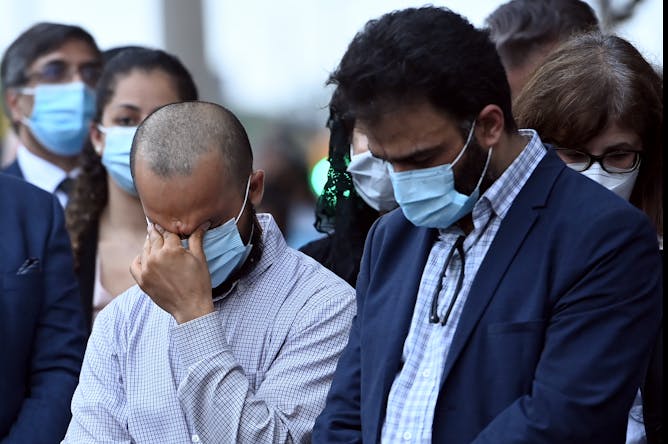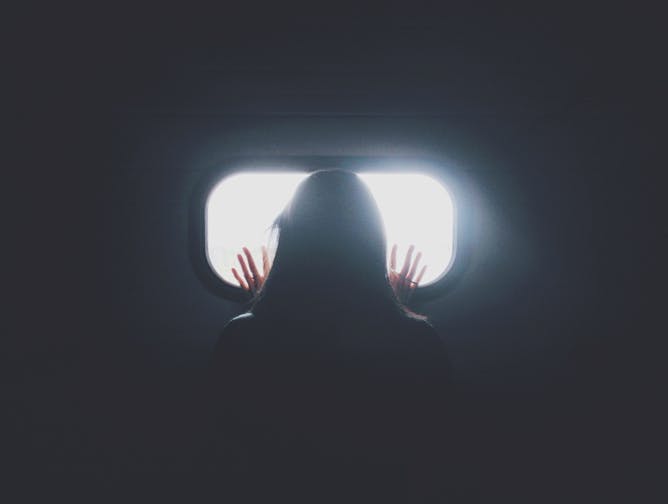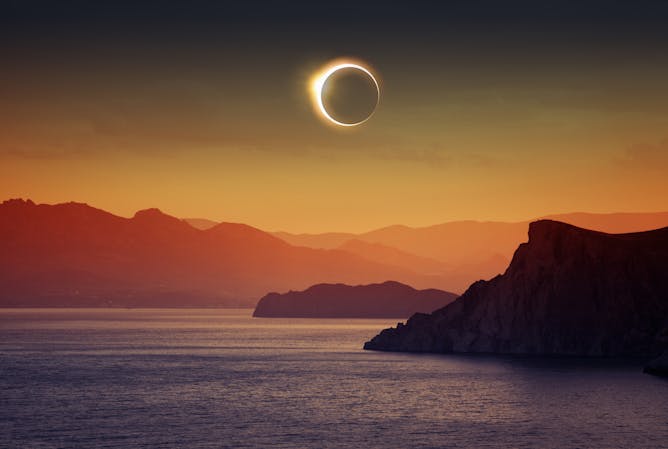|
|
|
|
We have abysmally failed to ensure justice and safety in our society. Our failure is clearly judged by the needless deaths of innocent lives taken because of white supremacy. This week, those lives belonged to 15-year-old Yumna Afzaal, her mother, Madiha Salman, her grandmother, Talat Afzaal, and her father, Salman Afzaal. This spring, the lives belonged to eight people in Atlanta, Georgia. Last summer it was George Floyd and Breonna Taylor. And, in 2016 it was Colten Boushie, an unarmed teenager hanging out with his friends.
The news of these violent racist attacks is incessant.
Instead of “performing outrage,” Canadians should demand a reevaluation of discriminatory federal laws as well as biased news media and a steady diet of pop culture that vilifies Islam. Today, in The Conversation Canada, Jasmeet Bahia from Carleton University outlines the ways in which Canadian society is complicit in the deaths of Salman Afzaal’s family. She writes, “Since 9/11, Islamophobia has grown in western society and has fed into a fear of people who look Muslim.” She explains that this dehumanizing of our fellow Canadians is bolstered by Canadian laws and attitudes, and means that some see “all brown people as the same.” Here,
she says, the “discrimination is not connected to a specific racial or ethnic group — rather, brown skin has become representative of deviance and danger.”
Will this extreme act of violence spark the action needed to end the cycle of hate that “continues without any disruption?”
Also today:
Regards,
|
Vinita Srivastava
Podcast Producer + Host | Senior Editor, Culture + Society
|

|
|

Mourners react during a moment of silence at a vigil for the victims of the deadly vehicle attack on a Muslim family in London, Ont.
(THE CANADIAN PRESS/Nathan Denette)
Jasmeet Bahia, Carleton University
Four members of a family were killed in a hate crime — only the nine-year-old son survived. Islamophobia has created a culture of hate in Canada that threatens those who are perceived as Muslim.
|

Black people constitute a significant percentage of the global Arab population.
(Brett Jordan/Unsplash)
Amir Al-Azraki, University of Waterloo
Black Arabs face racism and discrimination throughout the Arab world. Exposing this anti-Blackness is challenging but critical work.
|

Protesters attend an anti-government march at Plaza Bolivar in Bogota, Colombia, where citizens have taken to the streets for weeks after proposed tax increases and to decry police brutality.
(AP Photo/Fernando Vergara)
Diana M. Barrero Jaramillo, University of Toronto
The Colombian government responded violently to a general strike over tax reforms that primarily affected working-class citizens. It has fueled calls for police reform.
|

Women often feel stuck caring for others. We must consider how we can learn from them and from care scholars about how to get “unstuck.”
(Mario Azzi/Unsplash)
Janna Klostermann, Brock University
Women often feel stuck caring for others. We must consider how we can learn from them and from care scholars about what needs to change.
|

The more cities grow, the more urban residents need access to enjoy urban forests.
(squeaky marmot/flickr)
Lorien Nesbitt, University of British Columbia
The more our cities grow, the more we need access to enjoy — and be in relationship with — urban forests to maintain our well-being.
|
La Conversation Canada
|

La maladie d'Alzheimer est caractérisée par des pertes progressives de la mémoire, une désorientation spatiale, et bien d’autres troubles cognitifs et comportementaux qui mèneront ultimement à un état grabataire et de dépendance totale.
(Shutterstock)
Étienne Aumont, Université du Québec à Montréal (UQAM)
La théorie de l’amyloïde bat de l’aile, mais l’approbation d’Aducanumab représente un risque qu’elle reprenne toute la place et ralentisse la recherche de traitements plus prometteurs.
|

La possibilité de voir une éclipse solaire dépend fortement de votre localisation et de la présence d'un ciel sans nuages (ou du moins de nuages dispersés).
(Shutterstock)
Samantha Rolfe, University of Hertfordshire
Une très rare éclipse du Soleil se produira à l’aube, jeudi matin, et pourrait être visible à partir de plusieurs endroits si le ciel est dégagé. Voici quatre façons de profiter du spectacle.
|
Culture + Society
|
-
Marie-Eve Bouchard, University of British Columbia
Students from São Tomé and Príncipe must negotiate being both native speakers of Portuguese and Black Africans. And how they speak Portuguese is perceived as an issue.
|
|
Business + Economy
|
-
Erin Bass, University of Nebraska Omaha
Wriggling out of paying taxes may be legal, but is it right? Aristotle, Immanuel Kant – and others – have their say.
|
|
Environment + Energy
|
-
Natasha Mikles, Texas State University
In a Japanese tree burial, cremated remains are placed in the ground and a tree is planted over the ashes to mark the gravesite. Environmental responsibility is part of Buddhism.
|
|
| |
| |
| |
| |
| |
| |
|
|
|
|
|
|
|